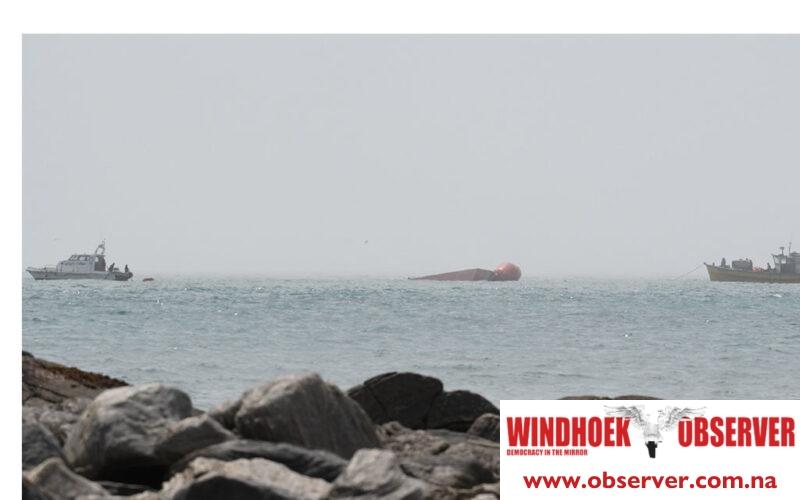Niël Terblanché
Environmentalists raised the alarm over the weekend after a barge belonging to Kelp Blue partially submerged off the coast of Lüderitz, causing concern for damage to marine life in the area.
The incident, attributed to bad weather and strong winds, led to the barge partially sinking in Shearwater Bay.
Kelp Blue immediately responded, launching a salvage operation while working to clear debris from the shore.
A team from Kelp Blue has been at sea since Monday, attempting to recover the barge, while others have been cleaning up washed-up flotsam, which includes ropes, floats, and other debris scattered along the shoreline.
The environmental group Lüderitz Marine Research expressed concerns on Sunday about the potential risks to marine life, although Kelp Blue assured the public that the barge was not motorised and contained no oils or fuel onboard, thus reducing the risk of an oil spill.
Kelp Blue, a pioneer in sustainable kelp farming, confirmed the incident and stated that all crew members were safe.
The company is collaborating with relevant authorities, including maritime affairs and NamPort, to ensure the successful recovery of the vessel and to minimise any environmental impact.
In a short statement, the company said that its immediate focus is the salvaging of the barge and cleaning up the surrounding area to protect marine life.
Kelp Blue is cultivating giant kelp forests off the coast of Lüderitz and the barge is used to transport harvested material to the Lüderitz harbour.
The company’s innovative project, located in the nutrient-rich waters of the Benguela Current, aims to boost marine biodiversity, mitigate climate change by sequestering carbon dioxide, and contribute to Namibia’s “blue economy.”
The project, which spans over 30 hectares of kelp forests in its pilot phase, has the potential to expand up to 1 000 hectares and play a pivotal role in enhancing marine ecosystem health.
Kelp farming, particularly the cultivation of giant kelp, provides numerous environmental benefits.
Kelp forests act as carbon sinks, drawing in significant amounts of carbon dioxide from the atmosphere and locking it away in the ocean.
This process contributes to the fight against climate change while supporting marine biodiversity.
Kelp farming also creates environmentally sustainable products, such as biodegradable packaging and biostimulants, which can be used to enhance agricultural yields and drought resilience, particularly in a climate-sensitive country like Namibia.
Kelp Blue, which started operations in 2021, has grown two large kelp forests in Lüderitz and continues to explore innovative ways to integrate kelp into the global economy.
Its project also promises to create employment in the coastal town, offering jobs to local marine biologists and residents involved in monitoring and maintaining the kelp forests.
Kelp Blue has promised to provide further updates about the sunken barge while also stressing that the safety of the recovery team and the protection of the environment remain its top priorities.




